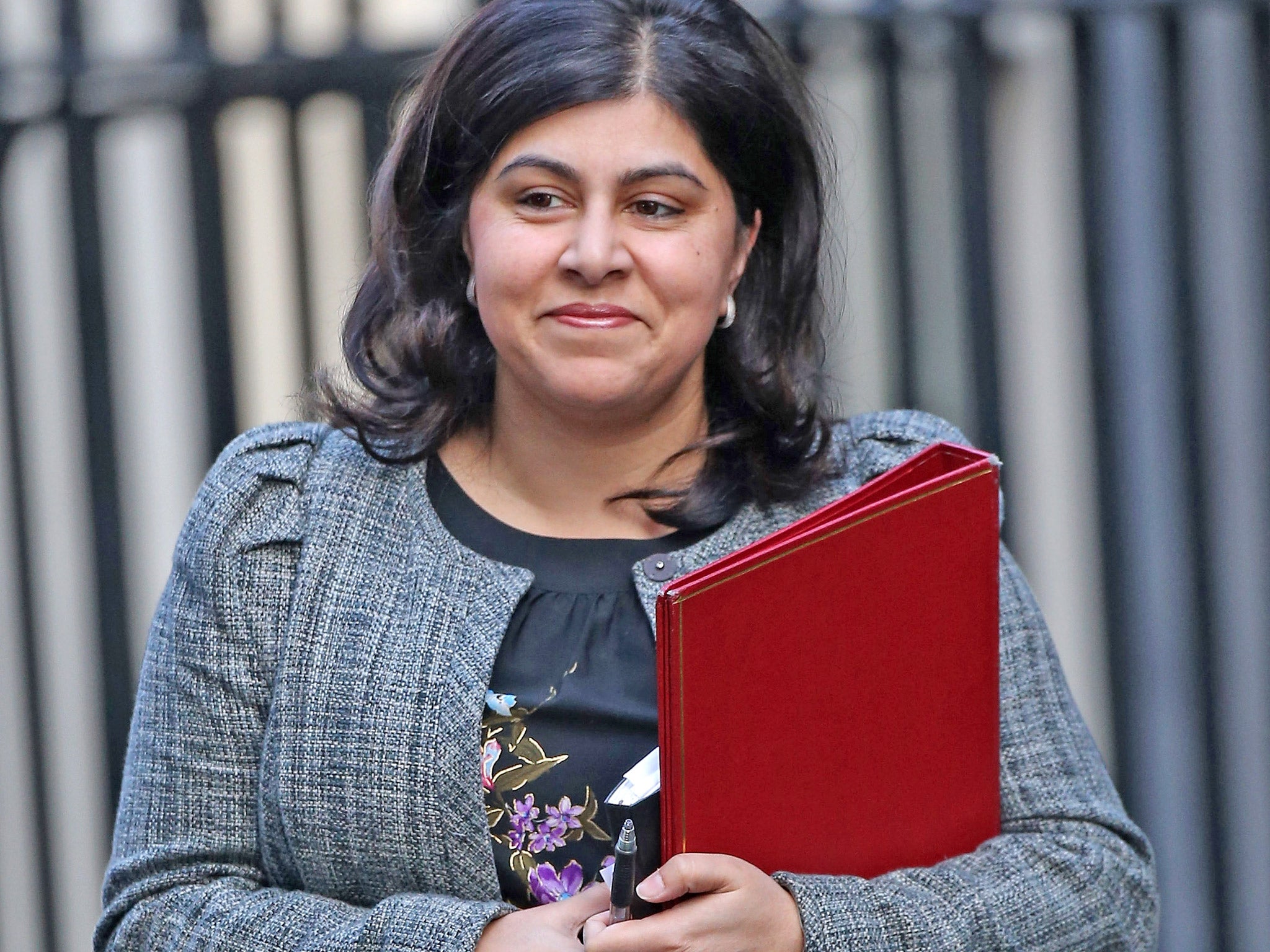Andy McSmith's Diary: Much Urdu about what former Conservative Party chairman Baroness Warsi said

Your support helps us to tell the story
From reproductive rights to climate change to Big Tech, The Independent is on the ground when the story is developing. Whether it's investigating the financials of Elon Musk's pro-Trump PAC or producing our latest documentary, 'The A Word', which shines a light on the American women fighting for reproductive rights, we know how important it is to parse out the facts from the messaging.
At such a critical moment in US history, we need reporters on the ground. Your donation allows us to keep sending journalists to speak to both sides of the story.
The Independent is trusted by Americans across the entire political spectrum. And unlike many other quality news outlets, we choose not to lock Americans out of our reporting and analysis with paywalls. We believe quality journalism should be available to everyone, paid for by those who can afford it.
Your support makes all the difference.Lord Ahmed is not the only British politician to have made the mistake of assuming that what is said in Urdu will not get picked up by the English language media.
Baroness Warsi, the Foreign Office minister and former Conservative Party chairman, was speaking at a dinner in Rotherham in honour of a visiting Pakistani politician just before the last general election, and took issue with a previous speaker who had said there should be more Muslims in Parliament.
She replied, in Urdu: “One of the lessons we have learnt in the last five years... is that not all Muslims who go into politics are principled. Not all Muslims that are involved with politics are Lord Ahmed. Not all of them put their community first, and career second…”
The Lord Ahmed she was upholding as a politician who put community before self is the same Labour peer who was imprisoned for dangerous driving after an accident in which a young man was killed and who has apparently attributed that misfortune to a Jewish conspiracy.
The new life of Sir Brian
A mixed day for Lord Justice Leveson: the Prime Minister could not be persuaded to adopt his proposals for press regulation, but on the other hand it has been announced that he is the new Chancellor of Liverpool John Moores University, where he will be known simply as Sir Brian. He succeeds another Brian – the ex-Queen rocker and similarly coiffed Brian May, below.
Queen's horse master has meaty confession
Lord Vestey is a man who knows horses. He is Master of the Queen's Horses, responsible for the Queen's carriages and the beasts that pull them, and chairman of Cheltenham Racecourse, as well as being heir to the huge Vestey Food Group founded by his great grandfather and great great uncle from a butcher's shop in Liverpool.
Yesterday, embarrassingly, his firm had to fess up to another (covert) connection with horses. Some of the stuff they have been selling as halal meat was contaminated by the flesh of dead horses. They have promised to publish more details by the end of the month.
Matrimonial slur on Tory peer's birth sisters
“A friend of my father once asked him what my sisters did. He said: 'They marry, long and hard and often',” Lord Mancroft, a Tory peer, told the House of Lords.
This seems a bit unfair on his sisters, Victoria and Jessica, who have had only one husband apiece, Victoria's being the splendidly named Frederick Nicholas Prinz von Preussen – but fair enough if he had in mind his step-sister, Miranda Quarry, Countess of Stockton, whose repeated entries into holy matrimony began in 1970, with Peter Sellers.
Never mind the bad language
It is, I believe, a first in Parliamentary history. An MP asked for and received permission from the Speaker to talk “bollocks”. They do it all the time, I hear you say – but you mean, they do it figuratively. This was a case of an MP talking bollocks literally.
Tory MP Tim Loughton was defending his decision to be rude to a constituent who had been very rude to him. “The word I used was 'bollocks',” he told MPs, having checked with the Speaker that it was OK to say “bollocks”.
He added: “The word is often used figuratively as a noun to mean 'nonsense', as an expletive following a minor accident or misfortune, or as an adjective to mean 'poor quality' or 'useless'. Conversely, the word also figures in idiomatic phrases such as 'the dog's bollocks' or 'the bollocks', referring to something that is admired or well-respected.
So, everything you needed to know about the semantics of “bollocks” from the Official Report of the House of Commons.
Join our commenting forum
Join thought-provoking conversations, follow other Independent readers and see their replies
Comments